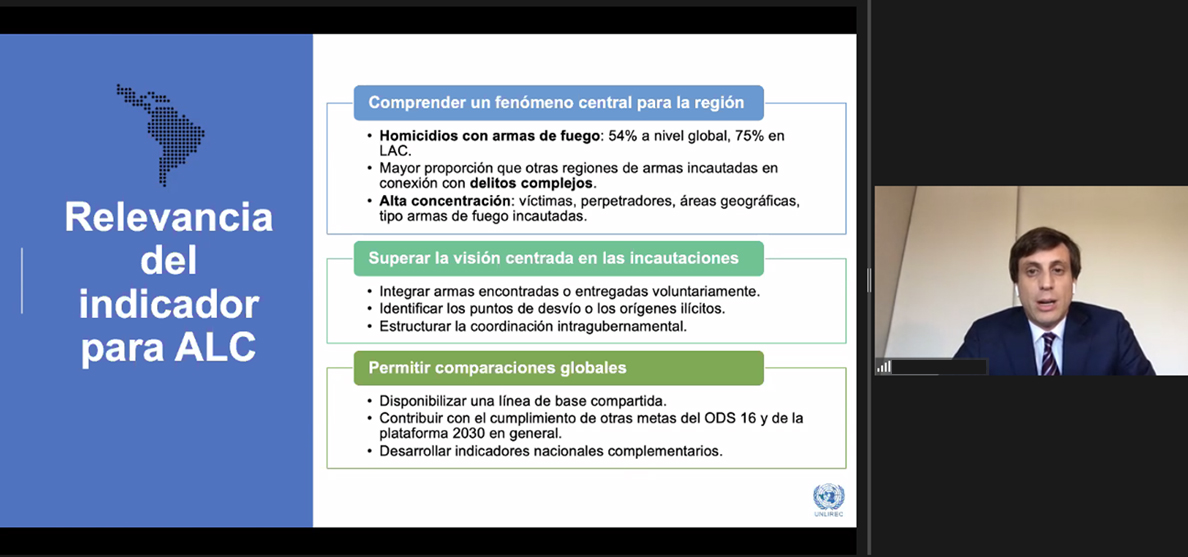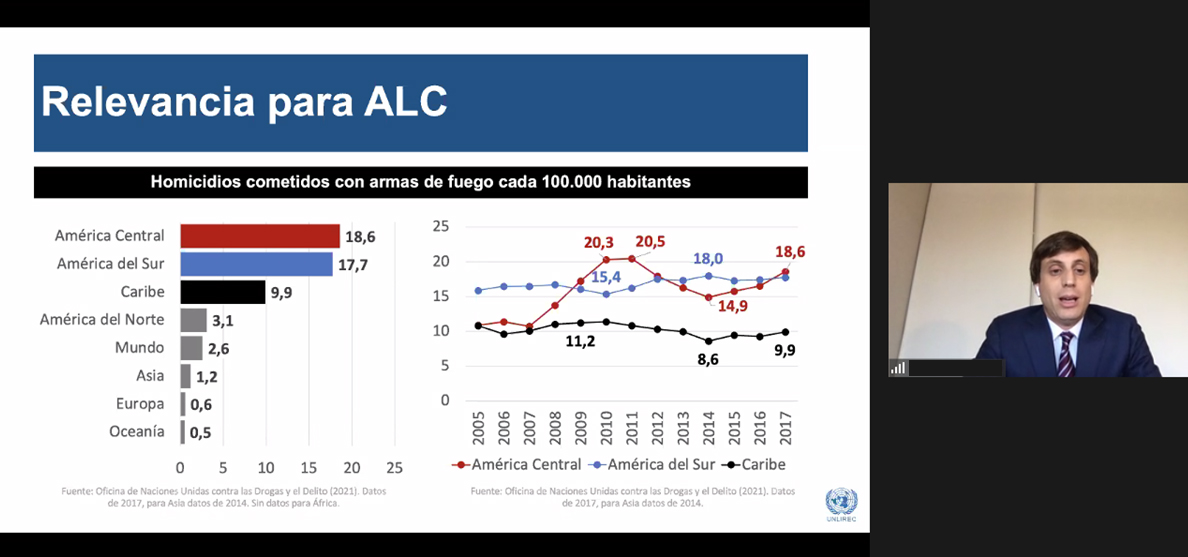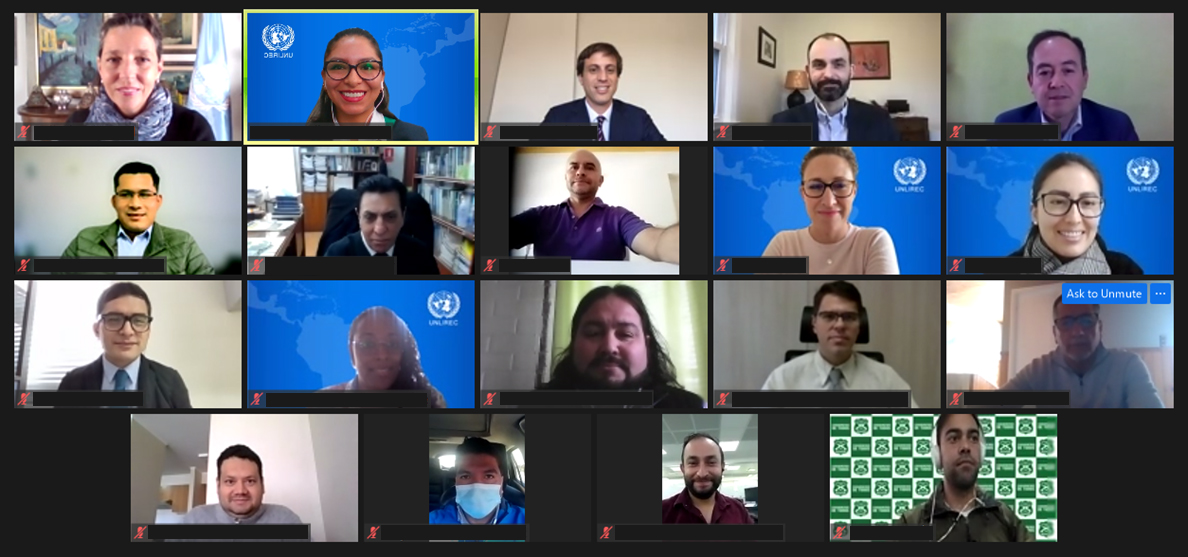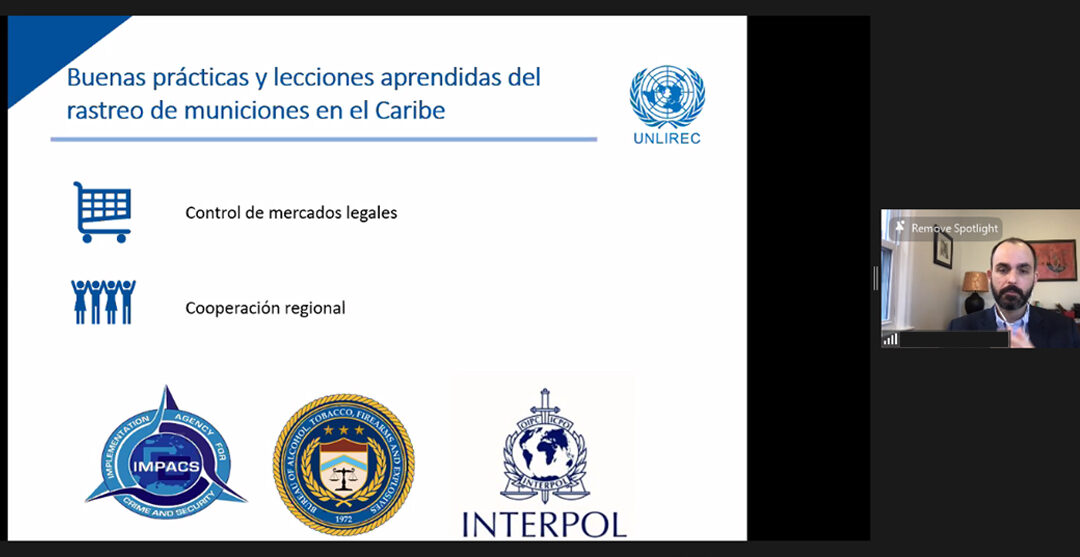On 30 November 2021, the United Nations Regional Centre for Peace, Disarmament and Development in Latin America and the Caribbean (UNLIREC), within the framework of the project “Combating illicit trafficking in arms and ammunition in Latin America and theCaribbean”, held the Regional Webinar “Optimizing measures to combat illicit trafficking in firearms and ammunition: Presentation of exploratory papers on Ammunition Tracking and Monitoringof the SDG indicator on illicit arms flows”, aimed to officials and facilitators with responsibilities in the control, regulation and management of firearms and ammunition in countries of Latin America and the Caribbean.
During the webinar, UNLIREC presented exploratory papers on ammunition tracing practices in Latin America and the Caribbean, as well as national mechanisms for the monitoring and evaluation of indicator 16.4.2 of the 2030 Agenda, with the purpose of promoting regional dialogue in optimizing measures to combat illicit trafficking in firearms and ammunition.
The study of Ammunition Tracing Practices in Latin America and the Caribbean, elaborated during 2020-2021, documents current practices, gaps and challenges related to ammunition tracing, and identifies practical recommendations and measures to achieve an effective ammunition tracing system. In the webinar, UNLIREC highlighted the importance of marking, recording, and tracing ammunition to contribute to criminal investigations and to prevent and combat their diversion, illicit trafficking, and misuse.
The study Monitoring and Evaluation of Indicator 16.4.2 in Latin America and the Caribbean identifies regulatory gaps and institutional challenges in measurement said indicator and determines a set of regional good practices to comply with target 16.4 of the SDG related to the reduction of illicit arms flows. During the webinar, the relevance of this indicator for the region was spotlighted.
In this event participated officials and practitioners from Argentina, Brazil, Colombia, Chile, Costa Rica, Guatemala, Jamaica, Mexico, Peru and Trinidad and Tobago, some of whom participated and facilitated the conduct of the research.
For more information about UNLIREC, visit www.unlirec.org.




